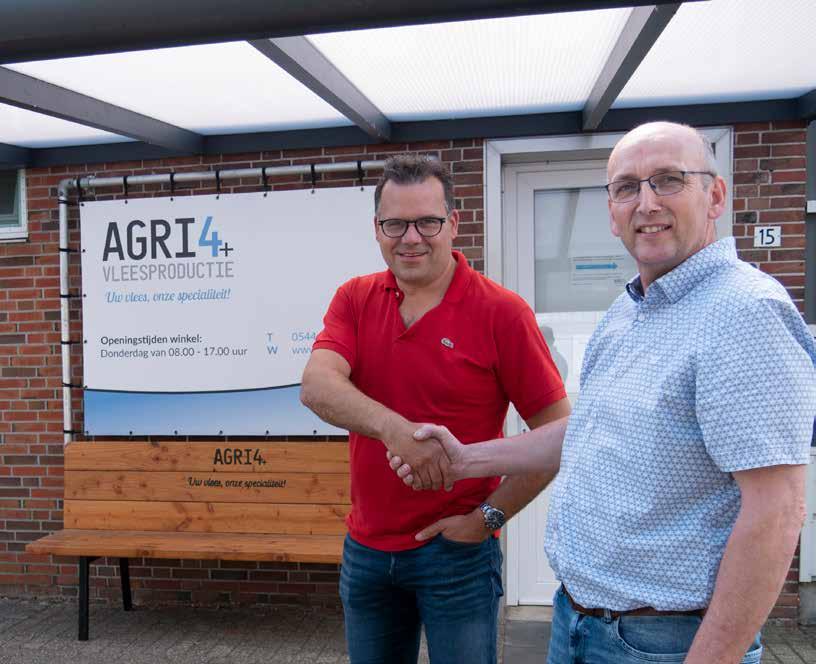
10 minute read
Partnership between Agri4+ & VAEX
ADDING VALUE TO SLAUGHTER PIGLETS IN A SOCIALLY RESPONSIBLE WAY
The partnership between VAEX and Agri4+ strengthens socially responsible production in the Dutch pig industry. VAEX provides sow farmers with a service to maximise the value of their selected piglets. Agri4+ gains continuity in the supply of slaughter-grade piglets, as well as additional market access when it comes to marketing meat products.
VAEX makes every effort to sustain the long-distance transport of piglets. All piglets for meat production transported abroad must be of good quality and healthy. This shouldn’t even be up for discussion. Not between the farmer, the driver, the inspecting vet, the trader or the buyer of the piglets, but also not with civil-society organisations or the government. This is why VAEX sees added value in the local slaughter and processing of selected piglets from farms with sows. In the Netherlands, VAEX opted for Agri4+ in Lichtenvoorde. The meat processing company with its own abattoir specialises in slaughtering piglets. Since 2020, Agri4+ has been owned by livestock and meat trader Frank Campmans, who first started slaughtering piglets at that company more than a decade previously. "We have modernised the facility's refrigeration system; there is camera surveillance and slaughter capacity has been increased," says Campmans. "In spite of the difficult period with the coronavirus, we have experienced decent growth. We are ready for expansion of the supply of Dutch slaughter piglets and additional sales of specific products on international markets. The partnership with VAEX gives us a boost on both counts." "The butcher's knife cuts both ways," adds VAEX CEO Dirk Govers. "We ensure the supply of slaughter-worthy piglets and support Agri4+ in expanding its meat sales. In doing so, we make use of our international network in the meat world, and respond together to the needs of customers in the various sales areas."
Expanding activities
According to Govers, the partnership with Agri4+ fits perfectly with VAEX's outlook on expanding its business activities. "Besides exporting heifers and trading piglets, finishers and sows, we trade carcasses and components of slaughter pigs. We want learn more about the meat chain and the production and trade of specific meat products, such as slaughter piglets." Agri4+ boasts thirteen years of experience in supplying quality meat to retail, catering and wholesalers both at home and abroad. The customer is central. Animal welfare and maximising the value of the slaughtered animal is their speciality. Govers: "Frank's vision aligns seamlessly with ours; we see opportunities, and want to move forward. Piglet slaughter is a specialist field which allows us to enter a niche market with international prospects."
Transparent
Slaughter piglets come in many different qualities and sizes. Second- and third-choice piglets with a live weight between 10 and 40 kilos are slaughtered. "These components partly determine the selling price in addition to the meat rating, a surcharge for litter size and possibly a seasonal correction," says Govers. "For each individual company number, a list of slaughter weights is printed out. Everything is thus transparent for the suppliers of the slaughter piglets." The trick, according to Govers and Campmans, is to efficiently turn the supply into customised products. "Quality products that customers are willing to pay for. Product development and finding new sales channels make working together dynamic and interesting." This partnership allows VAEX to enter the field of on-farm slaughter and emergency slaughter of cattle with a mobile slaughter unit. "These activities run seamlessly in the food production process. We maximise the value of animal proteins, while combining this as much as possible with socially responsible production," said Govers and Campmans.
A LOOK AT THE ROMANIAN MARKET
Hypor
Doripesco
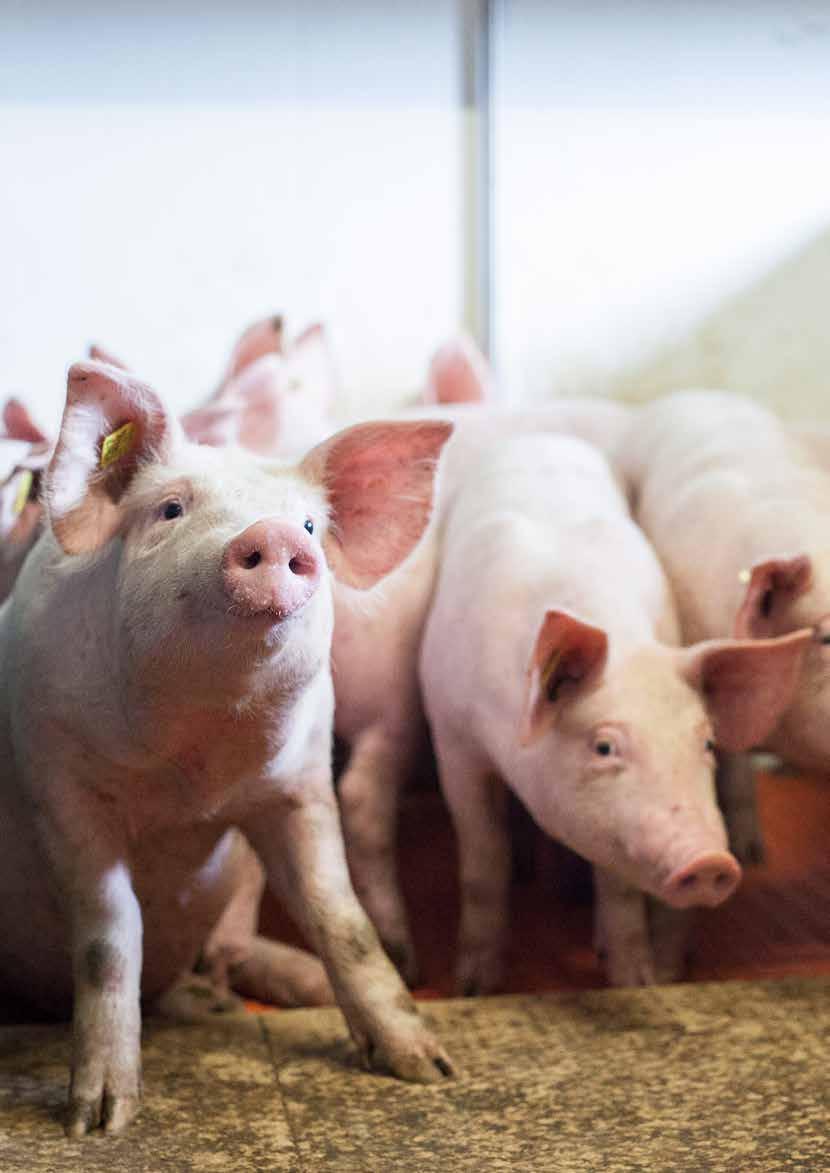
Dodomeat
Vet Services srl
The world of livestock and meat in which VAEX operates is dynamic. In a series of articles, four different leaders who are active in the Romanian pig market share their views. What developments, opportunities and threats do they see in their field of work? It zooms in on preventive and curative animal health, breeding and slaughter within the Romanian market.
Vet Services srl. founded in 2008, was one of the first companies in Romania specialising in veterinary services for livestock farming. Vet Services srl. provides veterinary training and advice, mainly for pig and poultry farms. We also offer technical and management advice in the veterinary field. Our network consists of farmers, traders, compound feed and pharmacy.
Currently, the pig sector in Europe, but especially in Romania, is going through a rather intense period. A period with challenges that farmers have never encountered before. Which puts pressure on many stakeholders within the sector. Swine fever, rising cost prices, a fluctuating market price, staff shortages and combating greenhouse gases are examples.
The level of responsibility of both breeders and veterinarians has increased with the advent of African swine fever. Since the first outbreak of African swine fever in Romania, it has been seen as the biggest problem in the pork sector. It has a drastic impact on the economy. But despite the extremely strict measures already taken, the disease is spreading towards countries in Western Europe. This highlights the importance of a good relationship between farmer and more innovative, are either improving or changing their business model, or that are open to new technologies, and are interested in new forms of cooperation will be able to adopt a better economic position.
veterinarian. This can result in closer monitoring of applied safety measures and the health status of the animals. Which has a beneficial effect not only on African swine fever control, but also on other diseases.
In addition, changing laws and regulations play an important role. For instance, the government has a target of reducing antimicrobial consumption by 50% by 2030. This requires new production methods. The vet is an important link in this changing picture. And can play a role in the development and implementation of new production methods. However, this is also an example of a challenge, which may involve a reduction in productivity and an increased administrative burden.
But whoever may be inclined to think that it will all end in tears is mistaken. In reality, this situation with many challenges, actually offers great opportunities for the sector. The sector should see these challenges as development opportunities. Staff shortages and countering global warming are, of course, major challenges, but offer opportunities for the sector to modernise by innovating equipment and increasing the level of digitisation. Companies that, for example, are Name: Mihai Neagu Position: Vet Company: Vet Services srl.
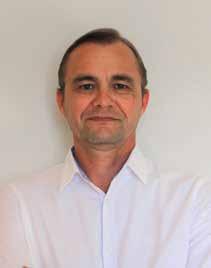
INVESTING IN BIOSECURITY AND A CLOSED SYSTEM
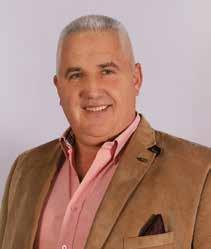
Name: Dorin Crizbășan Position: Founder and CEO Company: Doripesco
Doripesco is a company which originally specialised in fish farming and processing. But in recent years, they have continued to evolve in the pig industry. Now there are plans to expand this further by investing in biosecurity and a closed system.
Currently, Doripesco owns two pig fattening units in Crizbav, Brasov. The first fattening unit was built in 2014, and consists of five buildings. This fattening unit has a capacity of 13,950 animals per year. Four years later, in 2018, the construction of the second fattening unit started. This fattening unit consists of two buildings, and has a total capacity of 8,400 animals per year.
As these two fattening units are located in an African swine fever risk area, and the biosecurity system isn’t optimal, investments are being made to modernise this system. So that protection against the spread of pathogens such as African swine fever is more effective.
There are also plans to create a closed system. Whereby all steps of the process are in-house. From growing grain for food, to breeding and fattening, and finally slaughtering the animals and processing the meat. By investing in this, they will be less dependent on other links within the chain. This results in a lower risk of outside diseases, as all steps take place within the farm. In addition, with a closed system, you are less dependent on market conditions, and there are almost no negotiations with intermediaries. You have come full circle, so to speak; the entire chain is under your own control.
ENSURING FOOD SECURITY WITH DOMESTIC PRODUCTION
Sc. Dodomeat Solutions SRL specialises in pork processing and preservation. The company’s main activities are slaughtering and meat processing. The branch responsible for the production, processing and preservation of meat plays an important role in Romania, given that the majority of the Romanian population prefers to eat meat at almost every meal. This work guarantees the country's food security. However, the national pig market has been significantly affected by the advent of African swine fever, leading to more imports and less domestic production. This is where we see opportunities for the Romanian meat processing industry. By investing, we hope to improve the ratio of imports to domestic production.
In the future, Dodomeat aims to expand its business and network. Both at home, and abroad. But it is not easy to stand out in a market where Name: Danut Dodu Position: Technical manager Company: SC Dodomeat Solutions SRL
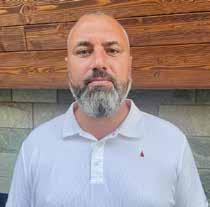
everyone sells the same thing. You have to be able to distinguish yourself from others. For instance, in terms of quality, new products, customer focus or range diversity. Applying modern technology also offers opportunities. Dodomeat’s internal focus is mainly on information technology, which allows us to digitise our production flow, for instance. Besides the opportunities we see for our own organisation, we also see opportunities for the Romanian pig market as a whole. Especially with small companies, located in rural areas or small towns. They can be sources of local growth. But large entrepreneurs can also stimulate growth, by acting as local leaders, and contributing to the development of the entrepreneurial spirit.
HIGH-QUALITY GENETICS FOR THE BEST YIELD
Hypor is part of Hendrix Genetics, a leading supplier of genetics for pigs and other livestock. Hypor sets the standard for balanced and sustainable pig breeding. Our head office is located in Boxmeer, the Netherlands, but with more than 3,400 employees worldwide, we offer our resources and expertise in more than 100 countries, including in Romania.
Global demand for animal proteins has increased in recent years, and the trend looks set to grow only further in the future. It is our responsibility to find the best solutions for this. Without compromising on quality. And most importantly, by offering a sustainable solution for the entire chain. Hypor is committed to providing superior genetics that support profitability in the pork value chain. And contributes to solving the global food challenge. Our breeding programme produces a sow that can produce many high-quality piglets throughout her life. Our gold standard is 35 piglets per sow, per year. These piglets, in turn, become valuable finishers. Pigs that grow fast and produce a high percentage of good-quality meat, with as little feed as possible.
But there is more than the global food challenge. African swine fever has caused serious problems in Romania over the past two years. Today, many countries in Europe are affected. Some more than others, but Romania remains one of the hardest hit countries. In addition, grain and energy prices are rising daily. Relative to these high costs, the price of meat is too low. This affects the profitability of companies in the sector. In short, we are entering a market with several challenges, which together have a negative effect on the market. Name: Marius Gherman Position: Key Account Manager for Romania, Bulgaria and Moldavia Company: Hypor
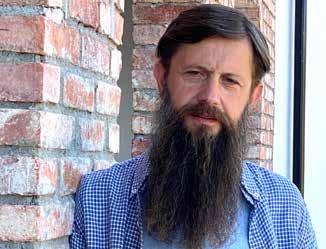
Sooner or later, the market will regain balance with regard to feed and meat prices. But with its motto: “Money you don't spend, you don't have to earn back”, Hypor genetics is prepared for the future. And this results in a good economic revenue model.





